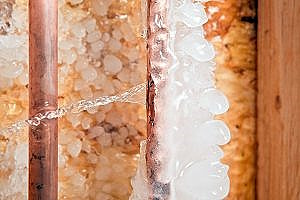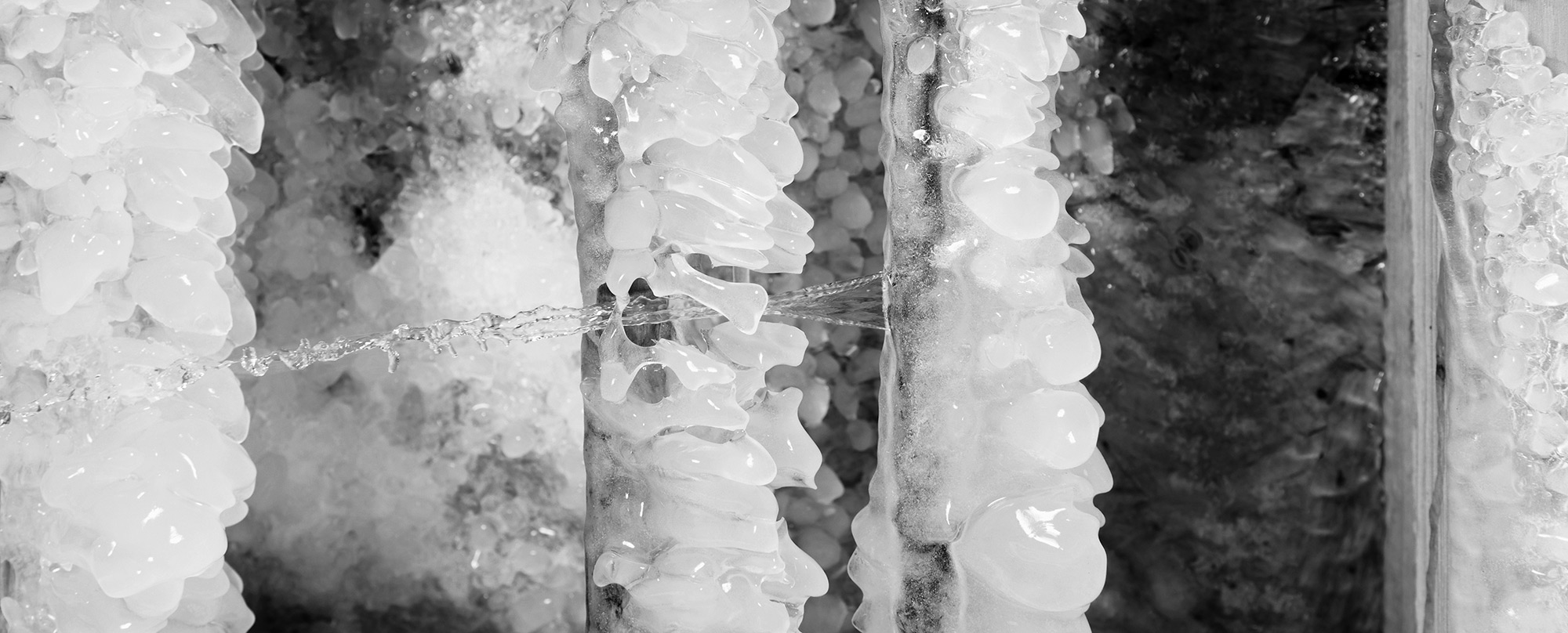
The coldest part of winter weather is almost here, but it’s not too late to take precautions to protect one of your largest home investments you might not think of this time of year – your home appliances. While frigid temperatures can make it uncomfortable for you and your family causing you to turn up the heat in your house, your appliances need a little TLC too to ensure that they perform well during the colder months.
Why should you be concerned about your appliances? Many people have their washers, refrigerators, dishwashers and other appliances near outer walls that may not be properly insulated and this includes basements, garages, utility rooms, and even some kitchens. All of these appliances use water lines and every year homeowners are susceptible to millions of dollars in damages due to frozen lines and eventual flooding.
How can you make sure your appliances are winter ready? Here are a few tips to give you piece of mind and help to keep your home free from water damage.
Insulate water hoses.
To keep all appliance water hoses as warm and dry as possible, protect them with pipe insulation. This will help to keep water going to and from your appliances from freezing, help to prevent water leaks, and could possibly save you from the headaches of costly water damage to your home. Consider using cylindrical foam pipe insulation with a side slit that makes it fast and easy to attach to your water hoses. In addition to cold weather protection, this type of insulation will also help to guard against condensation in the summer months.
Defrost your freezer.
Going into the winter months with excess ice in your freezer could lead to problems. Take time to defrost your freezer before the coldest months. The simplest way to do this is to unplug the unit. However, this means you’ll also have to remove all frozen foods. If you prefer to leave everything in your freezer, you can carefully use a blow dryer (while being sure not to make direct contact with any standing water), then use a wet-dry vacuum to remove the melting ice and water from all freezer shelves and areas.
Weather-seal all windows and vents.
Things like open dryer vents and gaps in windows can allow cold air into your home which can lead to frozen pipes and hoses. Consider using self-adhesive seal strips around all windows, vents and any other areas that are vulnerable to outdoor elements to help protect your home. This will not only help you take good care of your home appliances, you will also probably notice that your heating bills are lower, as well. Taking time for a little preventative maintenance will go a long way toward making winter a little more bearable.
Install a WaterCop system.
Even after taking all of these precautions, protecting your home from costly water damage should be a priority. When you install a WaterCop system you’ll have peace of mind and protection. When sensors detect a leak or low temperatures, a signal is sent to the shut-off valve and water flow is quickly stopped to downstream areas reducing the chance of major flooding. There’s also a smartphone app to provide system alerts, notifications, and remote control of your WaterCop system.
Give water damage the cold shoulder.
Be sure to follow these winterizing tips to help protect your appliances. If you would like to learn more about what WaterCop has to offer, we invite you to explore the details within our website or feel free to contact us at 800-545-3636. Think of it as the simple and convenient way to help protect your home from Old Man Winter.
